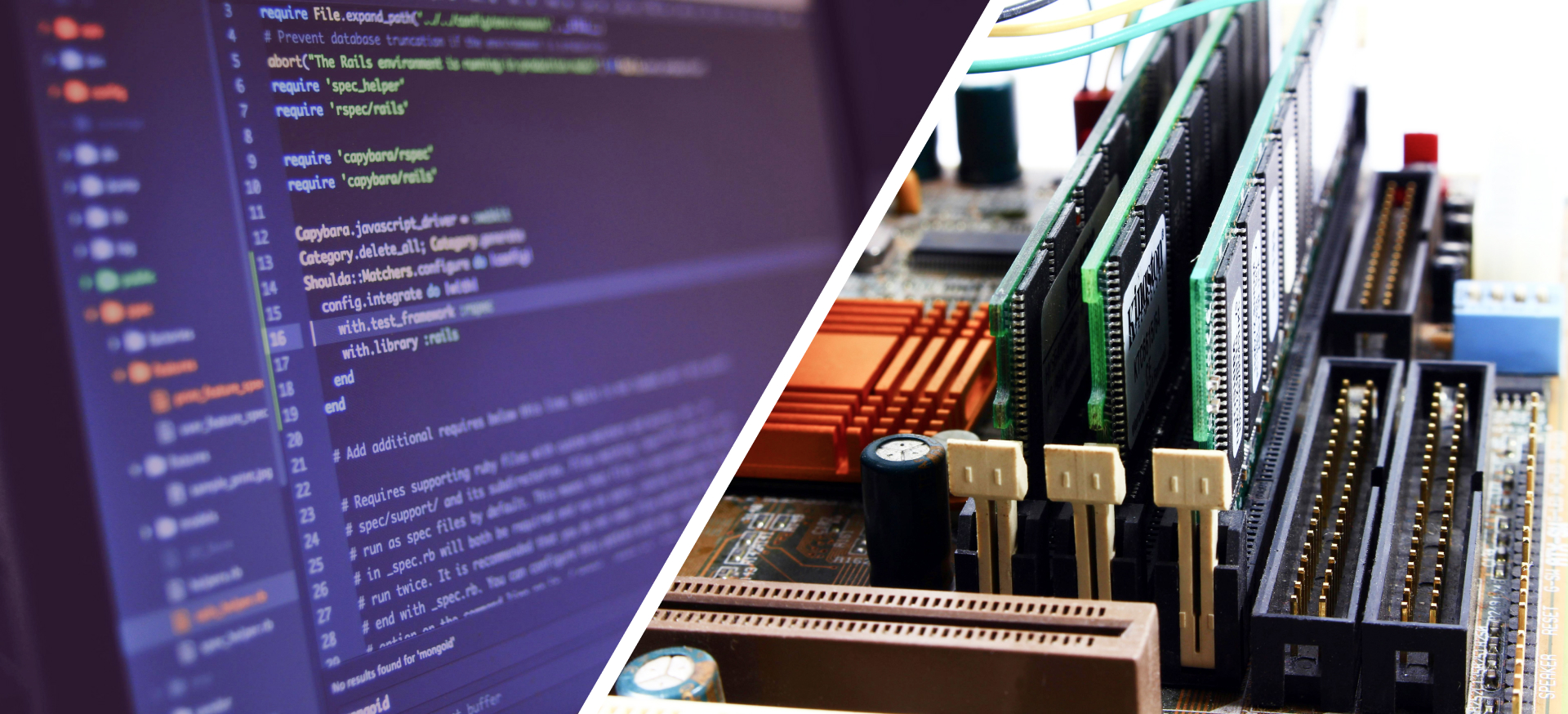Computer Science Vs Computer Engineering: Make Informed Decisions!

Choosing the right career path can be daunting, especially in rapidly evolving fields like technology. For students interested in computing, the decision often boils down to two prominent disciplines: Computer Science (C.S.) and Computer Engineering (C.E.). Both fields offer rewarding career opportunities, but they differ in focus, skill sets, and career paths. This blog will help you understand the key differences between Computer Science vs Computer Engineering, helping you decide which is right for you.
What is Computer Science?
Computer Science is the study of computers and computational systems. It is one of the best bachelor’s degrees in Pakistan. It involves the theory, development, and application of software and systems that can process information. Computer scientists are the architects of the digital world, working on everything from algorithms and software development to artificial intelligence and data structures.
Core Areas of Study in Computer Science

Programming Languages: Students learn various languages such as Python, Java, and C++ to develop software and applications.
Software Development: This includes methodologies like Agile and DevOps, focusing on the design, testing, and maintenance of software.
Data Structures and Algorithms: These are fundamental concepts that help in solving complex computing problems efficiently.
Artificial Intelligence (A.I.) and Machine Learning (ML): Advanced topics that are increasingly crucial in today’s technology landscape.
Cybersecurity: Protecting data and systems from cyber threats is a growing area of focus.
BS Computer Science is a versatile field, allowing graduates to work in various industries such as finance, healthcare, and entertainment. The job outlook for computer scientists is strong, with roles such as software developers, data scientists, and cybersecurity analysts being in high demand. Enrolling in the best university for computer science in Pakistan can enhance one’s expertise and career prospects.
What is Computer Engineering?
Computer Engineering combines principles from electrical engineering and computer science to design and develop computer hardware and software. It focuses on the integration of software and hardware systems, ensuring they work together seamlessly. Computer engineers often work on the development of computing systems, from microprocessors to large-scale computing networks.
Core Areas of Study in Computer Engineering

Computer Architecture: The design and organization of computer systems, including processors, memory, and storage.
Embedded Systems: Specialized computing systems embedded within larger devices, such as automotive control systems or IoT devices.
Hardware-Software Integration: Ensuring that software works efficiently with the hardware.
Networking and Communication: The design and maintenance of interconnected systems and networks.
Cybersecurity: Like computer science, cybersecurity is also a significant area in computer engineering, focusing on protecting hardware systems.
Bachelor’s in Computer Engineering is ideal for those who are interested in both the hardware and software aspects of computing. Career opportunities in this field include roles such as hardware engineers, network architects, and systems analysts.
Computer Science VS Computer Engineering: Key Differences
While both Computer Science and Computer Engineering lie at the intersection of technology and innovation, they diverge significantly in their focus, required skills, and career paths. Understanding these distinctions between C.S. and C.E. is crucial for anyone considering a career in these fields.
Focus of Study
Computer Science primarily revolves around software, algorithms, and data management. It delves into the theoretical and practical aspects of how information is processed, stored, and communicated by computing systems. This discipline emphasizes problem-solving using logical and mathematical concepts, with a strong focus on designing efficient algorithms, developing robust software applications, and managing large data sets.
On the other hand, Computer Engineering is fundamentally about the design, development, and improvement of hardware systems. This field integrates principles from both electrical engineering and computer science to build and enhance computing devices. Computer Engineering is deeply rooted in the physical aspects of computing, focusing on the creation and optimization of microprocessors, circuit boards, and other hardware components. Additionally, there is a strong emphasis on the integration of hardware and software, ensuring that the systems work seamlessly together.
Skills Required
The skill sets required for Computer Science and Computer Engineering success are as distinct as the disciplines themselves. Computer Scientists must possess strong programming abilities and a deep understanding of various algorithms and data structures. They need to be proficient in multiple programming languages such as Python, Java, or C++ and should have a strong foundation in software design principles. Analytical thinking, problem-solving, and a keen understanding of mathematics, particularly in areas like discrete mathematics and logic, are also crucial.
Conversely, Computer Engineers require a solid grounding in both mathematics and physics, particularly calculus and electromagnetics, which are essential for understanding hardware systems. In addition to software development skills, they must be well-versed in electrical engineering concepts, such as circuit design and signal processing. The ability to bridge the gap between hardware and software is critical, as Computer Engineers often work on integrating and optimizing these components within larger systems. Practical skills in designing and testing hardware, as well as proficiency in tools like VHDL (VHSIC Hardware Description Language) or Verilog for hardware design, are also vital in this field.
Career Paths
The career trajectories for graduates in Computer Science and Computer Engineering reflect the differences in their academic training. Computer Science graduates typically find themselves in roles that revolve around software and data. Careers such as software development, data science, cybersecurity, and artificial intelligence are common, with professionals working to create and refine software applications, analyze and interpret data, or develop algorithms that improve computing processes. The flexibility of a Computer Science degree in Pakistan allows graduates to work across various industries, including technology, finance, healthcare, and entertainment, where their skills in software and data management are highly valued.
In contrast, Computer Engineering graduates often pursue careers focused on the development and maintenance of hardware systems. Roles such as hardware engineer, systems architect, and network engineer are prevalent, with professionals working on designing, testing, and improving physical computing systems. These roles are critical in industries that rely on complex hardware, such as telecommunications, automotive, aerospace, and consumer electronics. Computer Engineers may also work on the development of embedded systems, which are integral to devices like smartphones, medical equipment, and industrial machines, where both hardware and software integration is essential.
Computer Science vs Computer Engineering: Which is Right for You?
Deciding between Computer Science vs Computer Engineering depends on your interests and career goals.
Choose Computer Science if:
- You are passionate about software development and enjoy working with algorithms and data.
- You are interested in fields like AI, data science, or cybersecurity.
- You want a versatile degree that opens doors to various industries.
Choose Computer Engineering if:
- You are fascinated by how computers work at the hardware level and enjoy building and designing computing systems.
- You want to work in hardware design, embedded systems, or network architecture.
- You are interested in integrating hardware and software and want a hands-on career.
Job Outlook and Salary Expectations in Pakistan

Computer Science Careers
In Pakistan, Computer Science graduates have a wide array of career opportunities, with one of the most popular roles being that of a Computer Programmer. On average, a Computer Programmer in Pakistan earns around PKR 900,000 annually. This field offers the potential for growth and progression into higher-paying roles, such as Software Developers and Data Scientists. Globally, the demand for these roles continues to rise, reflected by the median salary of $93,000 in the U.S. as of May 2021. This trend highlights the potential for competitive salaries in Pakistan as the industry continues to develop.
Computer Engineering Careers
For Computer Engineering graduates in Pakistan, the career outlook is equally promising. Network Engineers, a common career path for these graduates, have an average salary of approximately PKR 491,276 annually. Globally, roles such as Computer Architects are highly sought after, with an average annual salary of around $101,000, as reported by the U.S. Bureau of Labor Statistics in 2021. The field is expected to experience a 9% growth by 2031, indicating a strong future demand for professionals with these skills.
The demand for both Computer Science and Computer Engineering professionals in Pakistan is expected to grow as the country continues to expand its technological infrastructure and digital economy. This growth will likely lead to increased salary expectations and more diverse career opportunities in the coming years.
Conclusion
Both Computer Science and Computer Engineering are dynamic fields that offer rewarding careers. The choice between the two should be based on your interests, strengths, and career aspirations. If you are drawn to software and data, Computer Science may be the best fit for you. If you are intrigued by the workings of hardware and enjoy hands-on projects, Computer Engineering could be your ideal path.
Regardless of which path you choose, both fields offer the opportunity to be at the forefront of technological innovation, making significant contributions to the digital world.
Habib University fall 2026 admissions are open in Pakistan. Visit our E-application to apply for admission.








